|
Books Should Be Free Loyal Books Free Public Domain Audiobooks & eBook Downloads |
|
|
Books Should Be Free Loyal Books Free Public Domain Audiobooks & eBook Downloads |
|
Fiction |
|---|
|
Book type:
Sort by:
View by:
|
By: Alfred Russel Wallace (1823-1913) | |
|---|---|
 Is Mars Habitable?
Is Mars Habitable?
In 1907 Wallace wrote the short book Is Mars Habitable? to criticize the claims made by Percival Lowell that there were Martian canals built by intelligent beings. Wallace did months of research, consulted various experts, and produced his own scientific analysis of the Martian climate and atmospheric conditions. Among other things Wallace pointed out that spectroscopic analysis had shown no signs of water vapor in the Martian atmosphere, that Lowell’s analysis of Mars’ climate was seriously flawed and badly overestimated the surface temperature, and that low atmospheric pressure would make liquid water, let alone a planet girding irrigation system, impossible. | |
By: Fanny Dickerson Bergen (1846-1924) | |
|---|---|
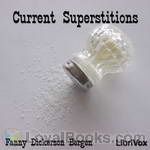 Current Superstitions
Current Superstitions
No matter how enlightened, chances are you’ve been raised around superstitious lore of one kind or another. Fanny Dickerson Bergen was one of the original researchers of North American oral traditions relating to such key life events and experiences as babyhood and childhood, marriage, wishes and dreams, luck, warts and cures, death omens and mortuary customs, and “such truck,” as Huck Finn would say. You’ll be surprised at how many of these old saws you’ll know. Here’s a quote from... | |
By: Carl Sandburg (1878-1967) | |
|---|---|
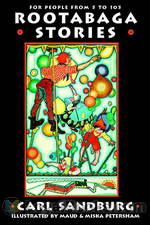 Rootabaga Stories
Rootabaga Stories
Carl Sandburg is beloved by generations of children for his Rootabaga Stories and Rootabaga Pigeons (which is not in the public domain), a series of whimsical, sometimes melancholy stories he originally created for his own daughters. The Rootabaga Stories were born of Sandburg’s desire for “American fairy tales” to match American childhood. He felt that the European stories involving royalty and knights were inappropriate, and so populated his stories with animals, skyscrapers, trains, corn fairies, and other colorful characters. | |
By: Ernest Bramah (1868-1942) | |
|---|---|
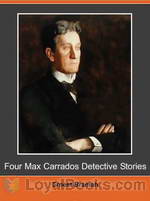 Four Max Carrados Detective Stories
Four Max Carrados Detective Stories
Ernest Bramah is mainly known for his ‘Kai Lung’ books – Dorothy L Sayers often used quotes from them for her chapter headings. In his lifetime however he was equally well known for his detective stories. Since Sherlock Holmes we have had French detectives, Belgian detectives, aristocratic detectives, royal detectives, ecclesiastical detectives, drunken detectives and even a (very) few quite normal happily married detectives. Max Carrados was however probably the first blind detective. | |
 Max Carrados
Max Carrados
Max Carrados is a blind detective who has developed his own remaining senses to a superior level and who has enlisted the superior observations skills of his butler to fill in for any deficiency of his own. His visual deficiency is no obstacle to solving the most difficult cases. As with some better known sleuths, Mr. Carrados' feats amaze, entertain and satisfy. | |
 Wallet of Kai Lung
Wallet of Kai Lung
The Wallet of Kai Lung is a collection of fantasy stories by Ernest Bramah, all but the last of which feature Kai Lung, an itinerant story-teller of ancient China. The collection's importance in the history of fantasy literature was recognized by the anthologization of two of its tales in the celebrated Ballantine Adult Fantasy Series. | |
By: Mary Godolphin (1781-1864) | |
|---|---|
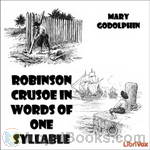 Robinson Crusoe in Words of One Syllable
Robinson Crusoe in Words of One Syllable
Mary Godolphin was the pseudonym of Lucy Aikin who undertook translating great literature into single-syllable words so that young readers could enjoy plots that were considerably more interesting than, say, the McGuffey readers of the 1880’s or the “Dick and Jane” primers of the 1950s (still around today as “decodable readers” in elementary schools). She produced this volume based on Daniel Defoe’s most famous work, considered by many to be the first English novel (1719). She also rendered Bunyan’s Pilgrim’s Progress and Wyss’ Swiss Family Robinson, which she translated as well. | |
By: Francis Pharcellus Church (1839-1906) | |
|---|---|
 Yes, Virginia, There Is A Santa Claus
Yes, Virginia, There Is A Santa Claus
“Is There A Santa Claus?” was the headline that appeared over an editorial in the September 21, 1897 edition of the New York Sun. The editorial, which included the response of “Yes, Virginia, There is a Santa Claus,” has become an indelible part of popular Christmas lore in the United States. | |
By: Hilaire Belloc | |
|---|---|
 On Something
On Something
“Now that story is a symbol, and tells the truth. We see some one thing in this world, and suddenly it becomes particular and sacramental; a woman and a child, a man at evening, a troop of soldiers; we hear notes of music, we smell the smell that went with a passed time, or we discover after the long night a shaft of light upon the tops of the hills at morning: there is a resurrection, and we are refreshed and renewed.” – Hilaire Belloc | |
 On Nothing & Kindred Subjects
On Nothing & Kindred Subjects
“I knew a man once, Maurice, who was at Oxford for three years, and after that went down with no degree. At College, while his friends were seeking for Truth in funny brown German Philosophies, Sham Religions, stinking bottles and identical equations, he was lying on his back in Eynsham meadows thinking of Nothing, and got the Truth by this parallel road of his much more quickly than did they by theirs; for the asses are still seeking, mildly disputing, and, in a cultivated manner, following the... | |
 This, That, and the Other
This, That, and the Other
“When Fame comes upon a man well before death then must he most particularly beware of it, for is it then most dangerous. Neither must he, having achieved it, relax effort nor (a much greater peril) think he has done his work because some Fame now attaches thereto.” -- Hilaire Belloc | |
 On Anything
On Anything
"Long before I knew that the speech of men was misused by them and that they lied in the hearing of the gods perpetually in those early days through which all men have passed, during which one believes what one is told, an old and crusty woman of great wealth, to whom I was describing what I intended to do with life (which in those days seemed to me of infinite duration), said to me, ( You are building castles in Spain.' I was too much in awe of this woman not on account of the wealth, but on account... | |
 Cautionary Tales for Children
Cautionary Tales for Children
| |
 The Bad Child's Book of Beasts
The Bad Child's Book of Beasts
| |
 More Beasts (For Worse Children)
More Beasts (For Worse Children)
| |
 More Peers : Verses
More Peers : Verses
| |
By: L. Frank Baum (1856-1919) | |
|---|---|
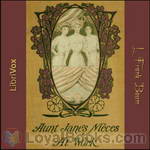 Aunt Jane's Nieces at Work
Aunt Jane's Nieces at Work
The novel carries forward the continuing story of the three cousins Louise Merrick, Beth De Graf, and Patsy Doyle, and their circle. The title is somewhat misleading; it could more accurately have been called Aunt Jane's Nieces in Politics. (Uncle John Merrick tells his nieces that politics is "work," which yields the title.)The story begins three days after the end of the previous book, Aunt Jane's Nieces at Millville; the freckled and red-haired Patsy still sports a sunburn from her summer in the Adirondacks... | |
 A Kidnapped Santa Claus
A Kidnapped Santa Claus
| |
 The Woggle-Bug Book
The Woggle-Bug Book
| |
 Aunt Jane's Nieces Out West
Aunt Jane's Nieces Out West
After visiting Louise, Arthur and Toodlums at their ranch in Southern California, Beth and Patsy, together with Uncle John, decide to spend the winter at an hotel in the little village of Hollywood, where they get drawn into the new motion picture industry. New friends, adventures and mysteries await. | |
 Aunt Jane's Nieces In The Red Cross
Aunt Jane's Nieces In The Red Cross
The 10th and final book in the series for adolescent girls sees two of the three cousins react to atrocities in World War I by volunteering in the Red Cross. Written under the pseudonym of Edith Van Dyne, this is the 1915 version, which reflects United States' neutrality. A later version, published in 1918, differed significantly to reflect changes in the position of the United States. | |
 Policeman Bluejay
Policeman Bluejay
This is another "TWINKLE TALE" from Mr. Baum (written under the pen name Laura Bancroft) and celebrates the further adventures of Twinkle and Chubbins as they magically become child-larks and live the exciting, and often dangerous, life of birds in the forest. | |
 Aunt Jane's Nieces In Society
Aunt Jane's Nieces In Society
Written under pseudonym of Edith Van Dyne. The story continues the adventures of three cousins, Louise, Patsy and Beth,with their debuts in society and the appearance of suitors, one of whom is rejected and kidnaps Louise. | |
 Aunt Jane's Nieces And Uncle John
Aunt Jane's Nieces And Uncle John
Aunt Jane's Nieces and Uncle John picks up the continuing story of the three cousins Patsy Doyle, Beth De Graf, and Louise Merrick, and their family; the plot of the book begins three days after the wedding of Louise and her fiancé Arthur Weldon, the event that concluded the sixth book in the series, Aunt Jane's Nieces in Society. Uncle John hires a touring car and the party makes a tour of the South West, visiting New Mexico and Arizona. | |
 Aunt Jane's Nieces on Vacation
Aunt Jane's Nieces on Vacation
Aunt Jane's Nieces on Vacation is a juvenile novel for girls, written by L. Frank Baum. It is the seventh in the ten volumes in the Aunt Jane's Nieces series, and carries forward the continuing story of the three cousins Lousie Merrick Weldon, Patsy Doyle, and Elizabeth De Graf. Like all the books in the series, it was issued under Baum's "Edith Van Dyne" pseudonym. | |